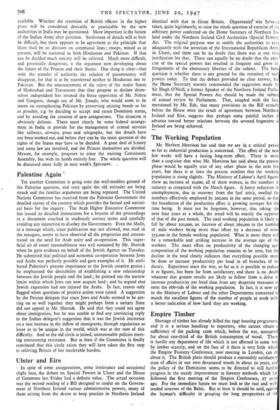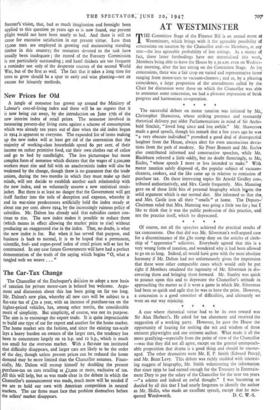Empire Timber
Shortage of timber has already killed the 1947 housing programme, and it is a serious handicap to exporters, who cannot obtain a sufficiency • of the packing cases which, before the war, accounted for about one-third of the British consumption of wood. There is hardly any department of life which is not affected in some way by timber scarcity, and on the face of it there is very little which the Empire Forestry Conference, now meeting in London, can do about it. The British plans should produce a reasonably satisfactory state of affairs in our own devastated woods in about 50 years, and the policy of the Dominions seems to be directed to still further progress in the steady_ improvement in forestry methods which has. followed the first meeting of the Empire Conference, 27 years ago. For the immediate future we must look to the vast and well- tended reserves of the Baltic. But at least it should be said, again the layman's difficulty in grasping the long perspectives of the
forester'l vision, that, had as much imagination and foresight been applied to this question so years ago as is now found, our present plight would not have been nearly so bad. And there is still no cause for excessive satisfaction in our present virtue. Less than 13,000 men are employed in growing and maintaining standing timber in this country; the resources devoted to the task have usually been inadequate ; the record of the Forestry Commission is not particularly outstanding ; and hazel thickets are too frequent a reminder not only of the desperate courses of the second World War, but of the first as well. The fact that it takes a long time for trees to grow should be a spur to early and wise planting—not an excuse for leisurely methods.



































 Previous page
Previous page